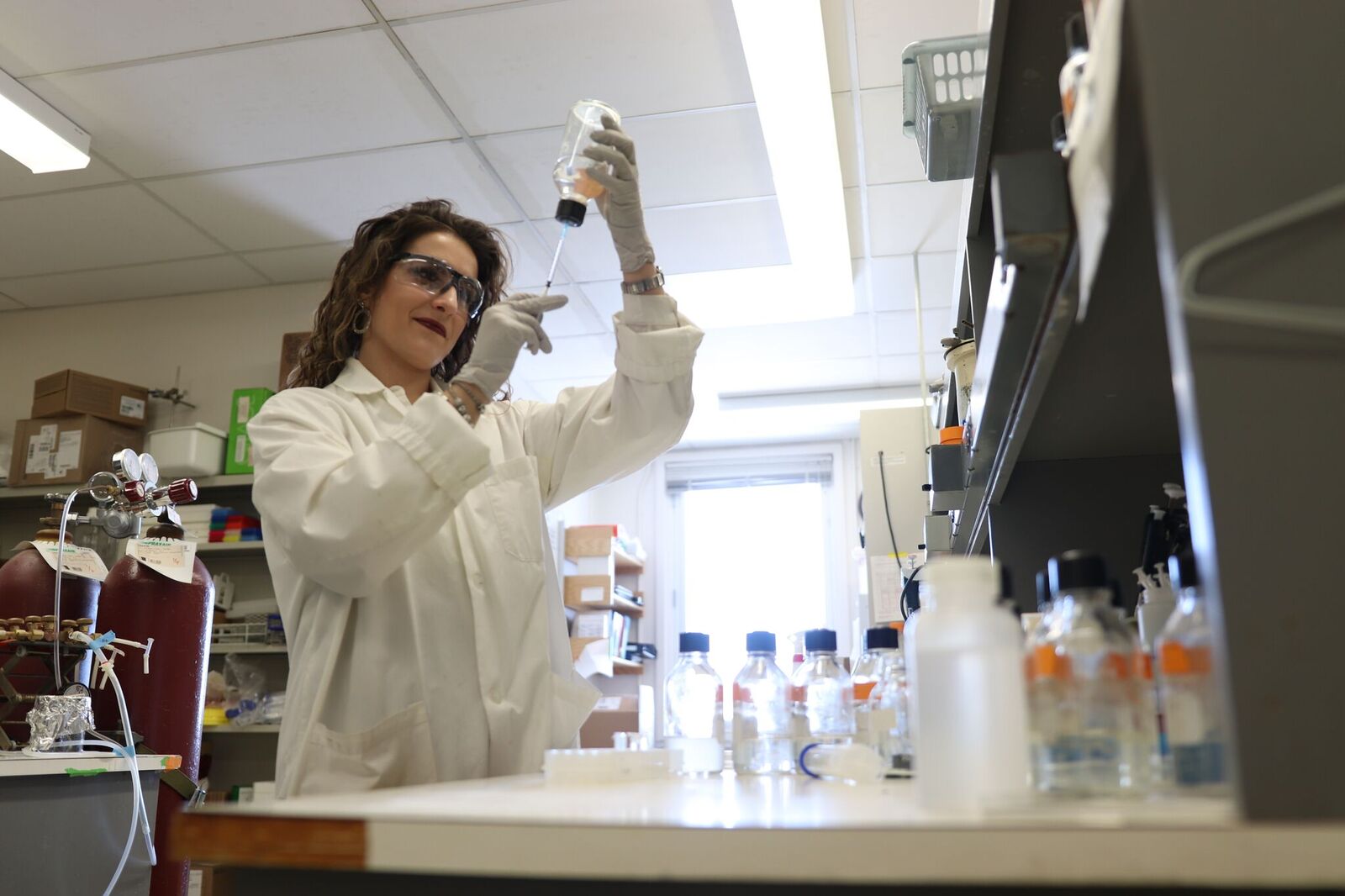
Tays decided to make sure the problems she was seeing with plastics in the environment would be eliminated. She's using bacteria to develop plastics that are 100-per-cent biodegradable. Photo: Kenneth Tam.
(Edmonton) Growing up, Catherine Tays could plainly see that plastics were harmful to the environment. Images of ducks entangled in plastic six-pack rings, and public awareness campaigns about plastics pollution informed and motivated her to take action.
"I've always been pretty environmentally minded," she said. "It's hard for me to see the state of global warming and how quickly we're changing the planet and not want to do something about it."
Tays decided to make sure the problems she was seeing with plastics in the environment would be eliminated.
To help find a solution, Tays combined engineering with her science knowledge. Today, she's graduating with a PhD in chemical engineering and biological sciences and is on the leading edge of a project aimed at producing 100-per-cent biodegradable plastics.
"If someone were to throw our plastic into the environment, it would just biodegrade. It would be a natural part of the cycle of decomposition," she explained.
Tays' research is part biology, part engineering.
"It's essentially biotechnology in an industrial context," she said.
Microscopic allies
Her approach is two-fold: by making bio-degradable plastics, we can reduce greenhouse gas emissions; and those plastics will decompose naturally and quickly, minimizing their impact.
The key to all this? Bacteria.
Tays is working with a specialized class of bacteria called methanotrophs, which eat methane-a potent greenhouse gas.
"Essentially, we're trying to use these bacteria to turn waste methane emissions into useful and environmentally friendly products like biodegradable bioplastics and biofuels," she said.
"One of the really tangible benefits would be to stop the release, or the burning of methane, and actually turn it into something useful."
Crossing boundaries
Tays finds it difficult to label herself strictly as a scientist, researcher, or engineer because her drive to find answers has led her to different fields of study.
"I don't like to define myself too much because I sit between a couple of different worlds. But certainly engineering principles guide a lot of the work I do and how I do it."
By all accounts, her path to engineering is unconventional. But Tays feels she brings something different to her project with her interdisciplinary lens.
Coming from biological sciences has allowed Tays to see things differently, not only because the end goal is based on a process, but also because of the material she works with.
"It's different working with organisms than working with chemicals or nano materials."
Real-life impact
Her motivation for environmental change and sustainability is what drives her work, and Tays' research holds the potential for real-world benefits.
"You stop greenhouse gas emissions, and you get a product out of it, like a bio plastic."
Tackling environmental issues isn't easy-there are no easy solutions nor is there just one approach.
"While I don't think that biotechnology is the only answer, I think it could be a huge part of the solution to stop the destruction we're doing to our climate and planet."